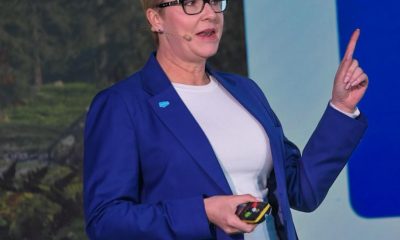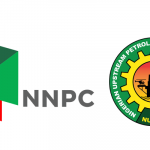Technology
Trusted AI Needs Human at the Helm

By Linda Saunders
AI promises to make our jobs easier, our work more productive, and our businesses more valuable. New research from Slack finds that 80% of employees using generative AI tools are experiencing a boost in productivity — and that’s just the beginning.
And, with the introduction of AI assistants — including Salesforce’s own Einstein Copilot — the potential for businesses is only growing. AI assistants can already answer questions, generate content, and dynamically automate actions. And someday, these assistants will become digital sales and service agents, anticipating our needs and operating on our behalf.
But with each new AI advancement comes new ethical concerns. It’s one thing if an AI assistant offers a bad product recommendation, but if it takes misguided actions on real-world concerns like personal finances or medical information — the stakes suddenly become much higher.
As we enter this new era of human-AI interaction, how can we harness the power of AI without opening ourselves up to dangerous risks?
Keeping a human at the helm
The AI revolution is an evolution. We’re taking quantum leaps forward every day, but we can’t always explain why AI does the things that it does — or eliminate every instance of inaccuracy, toxicity, or misinformation.
For these reasons, it’s important that we keep humans firmly in control of AI systems. But as AI becomes more and more sophisticated, it can be hard to figure out how to layer in that human touch. We’ve all heard of keeping “humans in the loop,” but with this new generation of AI, it’s sometimes just not realistic for us to engage in every AI interaction or review every AI-generated output.
That’s why, at Salesforce, we believe trusted AI needs a human at the helm. Instead of asking humans to intervene in every individual AI interaction, we’re designing more powerful, system-wide controls that put humans at the helm of AI outcomes and enable them to focus on the high-judgement items that most need their attention. In other words, humans aren’t always rowing the boat — but we’re very much steering the ship.
With a human at the helm, we can design AI systems that leverage the best of human and machine intelligence. For example, we can unlock incredible efficiencies by tasking AI to review and summarise millions of customer profiles. At the same time, we can build trust by empowering humans to lean in and use their judgement in ways that AI can’t.
Making AI a copilot, not an autopilot
There’s a reason this generation of AI products are called copilots and not autopilots. As AI becomes more powerful and autonomous — making decisions and taking actions on individuals’ behalf — keeping a human at the helm becomes even more important. By combining the capabilities of AI with the strength of human judgment, we can make AI more effective and trustworthy.
Here are three ways we’re keeping humans at the helm of Salesforce AI:
-
Prompt Builder Helps Us Automate in Authentic Ways: Prompts, or the instructions we send to generative AI models, are very powerful. A single, human-generated prompt can help guide millions of trusted outputs — but only if it’s constructed thoughtfully. With our newly announced Prompt Builder, we’re helping customers craft effective prompts by seeing the likely output in near real-time to help ensure they get the AI outcome they want. We’ve also added different edit modes within Prompt Builder that allow users to tune and revise their prompts to provide more helpful, accurate, and relevant results.
-
Audit Trails Help Us Spot What We’ve Missed: Our Einstein Trust Layer offers a robust audit trail that allows customers to assess AI’s track record and pinpoint where their AI assistant may have gone wrong and where AI went right. These features help identify issues across large datasets that humans might not spot; and can empower us to use our judgement to make adjustments based on the needs of our organisation. For example, Audit Trail can alert us when an AI tool’s outputs are flagged as “thumbs down” a certain number of times — a sign that the AI-generated outputs might not be meeting the business goals. By aggregating implicit feedback signals, like how often users edit an output before using it, Audit Trail can give us a bird’s eye view of our systems, allowing us to identify trends and take action.
-
Data Controls Help Us Better Guard Our Data: AI is nothing without data. That’s why we’ve designed robust controls in Data Cloud — our fast-growing platform that helps bring siloed customer data together in one place — to help businesses securely action their data. Data Cloud features help organizations harness data for AI-powered insights and intelligence. In contrast, longstanding Salesforce core data controls like permission sets, access controls, and data classification metadata fields empower humans and AI models alike to protect and manage sensitive data.
Pioneering a new approach for the AI era
As the AI era continues to unfold, both humans and technology must evolve along with it. The AI revolution is not just about technological innovation — it’s also about empowering humans to sit successfully at the helm of AI, and use it in ways that are trustworthy and effective.
Our approach is evolving, and we are committed to continued research, learning, and multi-stakeholder collaboration on this topic. But with a human at the helm, we believe we can combine the best of human and machine intelligence for this new AI era — leaning into AI’s capabilities and freeing up humans to do what they do best: be creative, exercise their judgement, and connect more deeply with one another.
With AI and humans working together, we can create more productive businesses, more empowered employees, and ultimately, more trustworthy AI.
Linda Saunders is the Salesforce Director for Solution Engineering Africa
Technology
Leticia Otomewo Becomes Secure Electronic Technology’s Acting Secretary

By Aduragbemi Omiyale
One of the players in the Nigerian gaming industry, Secure Electronic Technology (SET) Plc, has appointed Ms Leticia Otomewo as its acting secretary.
This followed the expiration of the company’s service contract with the former occupier of the seat, Ms Irene Attoe, on January 31, 2026.
A statement to the Nigerian Exchange (NGX) Limited on Thursday said Ms Otomewo would remain the organisation’s scribe in an acting capacity, pending the ratification and appointment of a substantive company secretary at the next board meeting.
She was described in the notice signed by the Managing Director of the firm, Mr Oyeyemi Olusoji, as “a results-driven executive with 22 years of experience in driving business growth, leading high-performing teams, and delivering innovative solutions.”
The acting secretary is also said to be “a collaborative leader with a passion for mentoring and developing talent.”
“The company assures the investing public that all Company Secretariat responsibilities and regulatory obligations will continue to be discharged in full compliance with the Companies and Allied Matters Act, applicable regulations, and the Nigerian Exchange Limited Listing Rules,” the disclosure assured.
Meanwhile, the board thanked Ms Attoe “for professionalism and contributions to the Company during the period of her engagement and wishes her well in her future endeavours.”
Technology
Russia Blocks WhatsApp Messaging Service

By Adedapo Adesanya
The Russian government on Thursday confirmed it has blocked the WhatsApp messaging service, as it moves to further control information flow in the country.
It urged Russians to use a new state-backed platform called Max instead of the Meta-owned service.
WhatsApp issued a statement earlier saying Russia had attempted to “fully block” its messaging service in the country to force people toward Max, which it described as a “surveillance app.”
“Today the Russian government attempted to fully block WhatsApp in an effort to drive people to a state-owned surveillance app,” WhatsApp posted on social media platform X.
“Trying to isolate over 100 million users from private and secure communication is a backwards step and can only lead to less safety for people in Russia,” it said, adding: “We continue to do everything we can to keep users connected.”
Russia’s latest move against social media platforms and messaging services like WhatsApp, Signal and Telegram comes amid a wider attempt to drive users toward domestic and more easily controlled and monitored services, such as Max.
Russia’s telecoms watchdog, Roskomnadzor, has accused messaging apps Telegram and WhatsApp of failing to comply with Russian legislation requiring companies to store Russian users’ data inside the country, and of failing to introduce measures to stop their platforms from being used for allegedly criminal or terrorist purposes.
It has used this as a basis for slowing down or blocking their operations, with restrictions coming into force since last year.
For Telegram, it may be next, but so far the Russian government has been admittedly slowing down its operations “due to the fact that the company isn’t complying with the requirements of Russian legislation.”
The chat service, founded by Russian developers but headquartered in Dubai, has been a principal target for Roskomnadzor’s scrutiny and increasing restrictions, with users reporting sluggish performance on the app since January.
Technology
Nigerian AI Startup Decide Ranks Fourth Globally for Spreadsheet Accuracy

By Adedapo Adesanya
Nigerian startup, Decide, has emerged as the fourth most accurate Artificial Intelligence (AI) agent for spreadsheet tasks globally, according to results from SpreadsheetBench, a widely referenced benchmark for evaluating AI performance on real-world spreadsheet problems.
According to the founder, Mr Abiodun Adetona, the ranking places Decide alongside well-funded global AI startups, including Microsoft, OpenAI, and Anthropic.
Mr Adetona, an ex-Flutterwave developer, also revealed that Decide now has over 3,000 users, including some who are paying customers, a signal to the ability of the startup to scale in the near future.
SpreadsheetBench is a comprehensive evaluation framework designed to push Large Language Models (LLMs) to their limits in understanding and manipulating spreadsheet data. While many benchmarks focus on simple table QA, SpreadsheetBench treats a spreadsheet as a complex ecosystem involving spatial layouts, formulas, and multi-step reasoning. So far, only three agents rank higher than Decide, namely Nobie Agent, Shortcut.ai, and Qingqiu Agent.
Mr Adetona said SpreadsheetBench measures how well AI agents can handle practical spreadsheet tasks such as writing formulas, cleaning messy data, working across multiple sheets, and reasoning through complex Excel workflows. Decide recorded an 82.5% accuracy score, solving 330 out of 400 verified tasks.
“The result reflects sustained investment in applied research, product iteration, and learning from real-world spreadsheet workloads across a wide range of use cases,” Mr Adetona told Business Post.
For Mr Adetona, who built Decide out of frustration with how much time professionals spend manually cleaning data, debugging formulas, and moving between sheets, “This milestone highlights how focused engineering and domain-specific AI development can deliver frontier-level performance outside of large research organisations. By concentrating on practical business data problems and building systems grounded in real user environments, we believe smaller teams can contribute meaningfully to advancing applied AI.”
“For Decide, this is a foundation for continued progress in intelligent spreadsheet and analytics automation,” he added.
-

 Feature/OPED6 years ago
Feature/OPED6 years agoDavos was Different this year
-
Travel/Tourism10 years ago
Lagos Seals Western Lodge Hotel In Ikorodu
-

 Showbiz3 years ago
Showbiz3 years agoEstranged Lover Releases Videos of Empress Njamah Bathing
-

 Banking8 years ago
Banking8 years agoSort Codes of GTBank Branches in Nigeria
-

 Economy3 years ago
Economy3 years agoSubsidy Removal: CNG at N130 Per Litre Cheaper Than Petrol—IPMAN
-

 Banking3 years ago
Banking3 years agoSort Codes of UBA Branches in Nigeria
-

 Banking3 years ago
Banking3 years agoFirst Bank Announces Planned Downtime
-

 Sports3 years ago
Sports3 years agoHighest Paid Nigerian Footballer – How Much Do Nigerian Footballers Earn

















